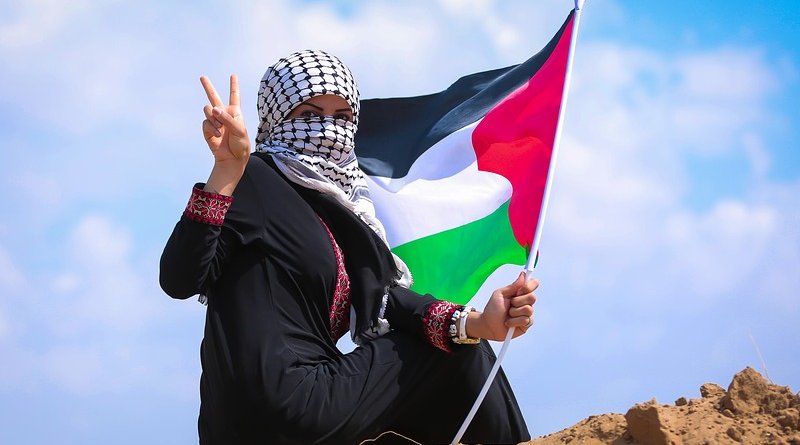Gender Divides On Both Sides Of The Green Line – OpEd
By MIFTAH
By Julie Holm
Before moving to Palestine I had many Scandinavian friends asking me if I would have to cover up my hair while living in Ramallah. When I tell my Palestinian friends about this they laugh. In Palestine, and especially Ramallah, women are freer than in most other Arab societies. The level of education among Palestinian women is the highest in the area, women hold jobs and are active in the struggle for independence. As anywhere else in the world, however, full gender equality is not a fact in Palestine. The infamous glass roof exists here as well, and most often women are kept from holding top positions, not least of all in government. Women participate side by side with men in the fight for an independent state, but when it comes to building that state, women have little to say. It is not only in Gaza, where in recent years Hamas has imposed greater restrictions on women, in the West Bank as well, the prominent gender discourse prevents women from participating in the public sphere on the same level as men.
The grass isn’t much greener on the other side of the wall, though. Israel is supposedly the sole democracy in the Middle East (even if this seems to be changing), and yet gender segregated streets and buses is becoming more and more common. It has been estimated that 500 bus journeys in Israel are segregated daily, which means that women are expected to sit in the back. During the Jewish holiday of Sukkot, the streets of the ultra-Orthodox neighborhood Mea She’arim in Jerusalem was divided up, leaving one sidewalk for women. This was to protect the women from uncomfortable mingling with men on their way to synagogue. The Israeli army is famous for having women serve side by side with men, but recently numerous cases have arisen where female soldiers have been ousted from combat and infantry-based roles as well as women filing reports of sexual harassment within the army.
In general, women are restricted in and excluded from many aspects of public life on both sides of the wall. This is also the case when it comes to the peace process and the talks and negotiations between the two sides. With few notable exceptions, men dominate domestic and international political practices in Palestine as well as Israel.
I have an Israeli friend in Jerusalem, Maya, who once told me that she thinks the relationship between Israel and Palestine would be completely different if women had the opportunity to play a larger role in addressing the conflict and internal affairs on both sides.
I do not see fundamental differences between men and women, and I do not believe that if women ruled the world the sky would be pink and everyone would live peacefully side by side. I have no intentions of drawing on stereotypes saying that all the violence, weapons and wars are caused by power struck men and if women were in power there would be less violence and more gossip. It is, however, an interesting subject to explore further.
If women actually had the opportunity to participate in the politics of their country equal to men, to speak their mind and describe the situation from their perspectives, using their own experiences as a point of departure, no doubt the situation here would be different. “The personal is political”, the European feminist movement espoused in the ‘70s, and here it is no different. The occupation affects every aspect of the lives of Palestinian women yet they do not have the same opportunity as men to do something about it.
While Israel is busy giving the impression that it is the only true democracy in the Middle East, Palestine is busy building a democratic state to be recognized in the UN. Neither of them can claim to be a democracy if women are not fully included in both domestic and foreign politics. The patriarchal structures of both Palestinian and Israeli societies keep women from participating in the peace process even though they are just as affected by the situation as men. The only difference is that Israel markets itself differently to the world, which results in the misconceptions reflected in my Scandinavian friends’ perception of Palestinians. While it is fair to say that the Palestinians do have a long way before reaching social and gender equality between men and women, they do not, at least, make women sit at the back of the bus.

